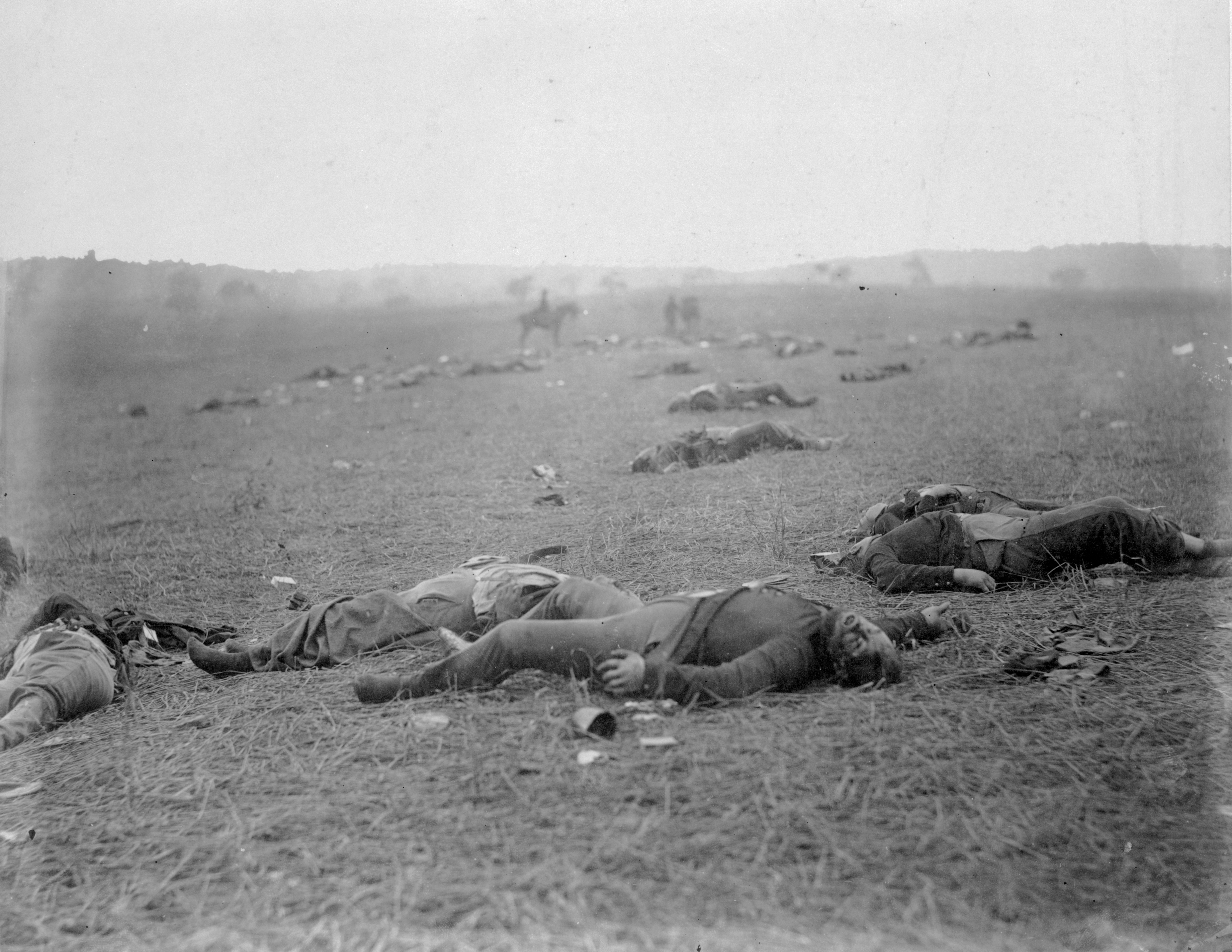
Photo of the aftermath of the Battle of Gettysburg, early July, 1863
In the United States, the idealism of the American version of the
Romantic revolt attempted to integrate the Enlightenment ideals of reason and
order and the superiority of these Western ways with Romantic ideals that re-asserted
the value of the individual. This produced painful excesses: genocide of the
native people, enslavement of millions of Africans, and, one of history’s worst
horrors, the US Civil War.
America had to undergo some difficult adjustments before it began
to integrate the Christian belief in the worth of every individual with the respect
for the law that enables individuals to live together in peace. But the slaves
were freed, and the government began to compensate the native tribes (with
reserves of land and with cash) and take them into the American mainstream
(with opportunities for Western-style educations), or rather, to be more accurate,
Americans began moving toward these ideals with more determination, and they continue
to do so into this era, as do all modern states.
Thus, in the larger picture of all of these events, the upheaval
called the Romantic Age imprinted into the Western value system a deeper
respect for the ways of compromise, which resulted in the institutions of modern,
representative democracy. These guided people toward balance and kept their
various countries from devolving into chaos. Democracy was, and is, our best
hope for creating institutions by which people use reason and debate instead of
war to find a balance in each generation between the security-loving
conservatism of the establishment and the passions of the reformers.
No comments:
Post a Comment
What are your thoughts now? Comment and I will reply. I promise.